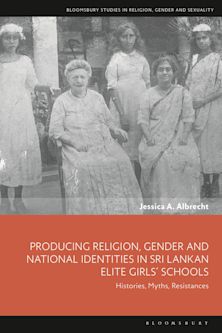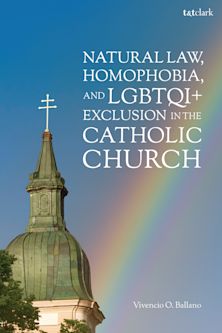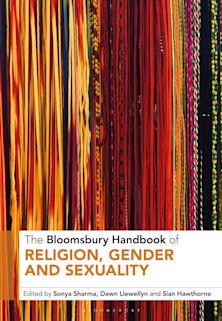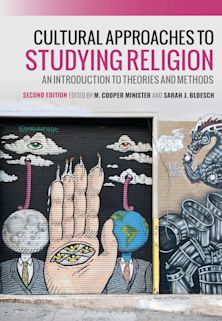- Home
- ACADEMIC
- Religious Studies
- Religion, Gender and Sexuality
- The Emplantation of Catholicism in Pre-modern Korea
The Emplantation of Catholicism in Pre-modern Korea
Texts, Teachings and Gender Relations
The Emplantation of Catholicism in Pre-modern Korea
Texts, Teachings and Gender Relations
You must sign in to add this item to your wishlist. Please sign in or create an account
Description
Tracing the development of Catholic ideas in Japan and China during the late sixteenth and early seventeenth century, this book provides an overview of the evolution of the missionary strategy in East Asia while focusing on the early emplantation of Catholicism in Korea.
Kevin Cawley recreates the tumultuous period for gender relations and explores interreligious interactions between Confucians and Catholics. Highlighting the textual production this period inspired, this book examines writings such as the catechism of the Italian Jesuit, Matteo Ricci (1552-1610), which went on to convert a group of elite Confucian scholars to the new religion. It also underscores the importance of the vernacular catechism written by Chong Yakchong (1760–1801), a convert from a prominent Confucian family, who was eventually executed. Chong's text made Catholicism easily understandable for women, as well as men from lower social classes, who eventually converted in significant numbers effecting real social change. Outlining the shift from rejection to acceptance of new texts composed by early Korean converts, this book explores emergent Catholicism in Japan, China and Korea, as well as the various challenges encountered and how the mission strategy changed as a result.
Exploring gender relations, both in relation to Confucianism and Catholics during this period, this book provides insight into this previously under researched aspect of East Asian Catholicism. In this study, we learn how religious persecution and political tactics manipulated, terrified and exterminated converts to Catholicism. From European Jesuits to Korean Confucians, this book outlines a fascinating journey of intercultural engagement between Western and Eastern worldviews.
Table of Contents
1. Jesuits on a Mission: Matteo Ricci's Transcultural Journey
2.Rejecting Heterodoxy: Choson's Orthodox Neo-Confucian Stronghold
3. Divergent Confucians: Conversions to Catholic Teachings in Choson
4. Dangerous Authorship: From Chong Yakchong to the Silk Letter
5. Deviant and Defiant Feminists in the Early Catholic Church
Conclusion: The Seeds of Future Church Growth
Bibliography
Index
Product details

| Published | 06 Feb 2025 |
|---|---|
| Format | Ebook (Epub & Mobi) |
| Edition | 1st |
| Extent | 232 |
| ISBN | 9781350236035 |
| Imprint | Bloomsbury Academic |
| Illustrations | 10 bw illus |
| Series | Bloomsbury Studies in Religion, Gender, and Sexuality |
| Publisher | Bloomsbury Publishing |
About the contributors
Reviews
-
The Emplantation of Catholicism in Pre-Modern Korea succeeds in challenging conventional narratives of missionary efforts ... Cawley has produced an engaging and meticulously researched study that not only recovers a fascinating but little-known story but also contributes significantly to broader discussions of cultural hybridity, religious globalization, and the dynamics of social transformation.
Reading Religion
-
The narrative and the style of the book are nothing less than gripping, especially when measured against the bulk of arid academic tractates. Cawley has an evident talent for effectively wedding authoritative scholarly discourse with captivating storytelling, which makes his narrative both memorable and of high academic standard.
Religious Studies Review
-
The Emplantation of Catholicism in Pre-modern Korea is a fundamental source for understanding the geo-political development of the Catholic movement in early modern Korea. Unlike Buddhism, Daoism and Shamanism, the Western religion was perceived as a sociocultural risk to the Confucian state's authority.
Journal of Religious History
-
Kevin Cawley brings a fresh approach to the examination of the early history of the Catholic Church in Korea, both in the theoretical and analytical approaches he uses, but also in the depth of his discussion on the 'reception history' of Catholicism. The book examines the psychological reasons for why people responded as they did to the Christian message, the importance of the use of the indigenous Korean alphabet in catechisms and hymnology and how the Christian Gospel reached repressed groups including women. Cawley has given us a fresh and deeper understanding of how Christian teachings were emplanted in difficult circumstances.
James H. Grayson, University of Sheffield, UK


































